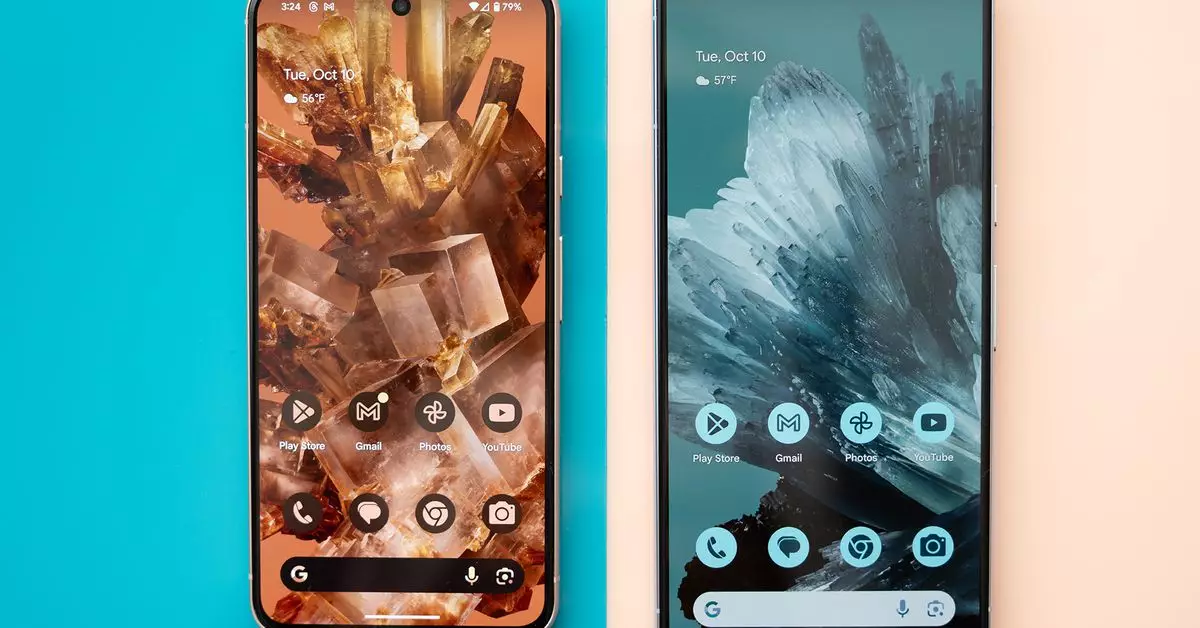As a seasoned tech reviewer with a passion for mobile photography and telecom, it is clear that the Humane AI Pin falls short in terms of cutting-edge technology. Despite claims of representing consumer tech at its finest, the pin is powered by a Snapdragon processor from four years ago and appears to be running a custom version of Android 12. This essentially makes it a midrange Android phone rather than a groundbreaking AI wearable as advertised.
The author’s attempt to create her own AI wearable using a Motorola Razr Plus and various AI applications highlights the challenges faced in achieving a seamless hands-free AI experience. From limitations in downloading apps on folding phones to the impracticality of using voice assistants on cover screens, it is evident that current hardware restrictions hinder the development of truly functional AI wearables.
Despite setbacks with foldable phones, the author’s transition to a Pixel 8 and a Pixel Watch 2 paired with wireless earbuds demonstrates some success in utilizing AI assistants for daily tasks. By setting up Gemini as the default assistant and leveraging the interconnected capabilities of the devices, the author was able to access timely information and assistance while cooking dinner, showcasing the potential of integrated AI technology.
The article emphasizes the dominance of smartphones as the ultimate AI gadgets, possessing powerful processors, efficient heat dissipation, and advanced wireless connectivity. The convenience and ubiquity of smartphones make them ideal for integrating AI functionalities seamlessly into everyday tasks, negating the need for separate AI wearables such as the Humane AI Pin.
While the idea of dedicated AI hardware may appeal to tech enthusiasts, the practicality and user acceptance of wearables remain a critical consideration. The popularity of earbuds and smart glasses like the Meta Ray Bans suggests that consumers are more willing to embrace AI technology when integrated into familiar and non-intrusive forms. The doofy factor of wearables plays a significant role in consumer adoption, highlighting the importance of designing AI products that seamlessly blend into everyday life.
The future of AI wearables lies in leveraging existing smartphone technology rather than developing separate gadgets. The seamless integration of AI assistants into smartphones, paired with accessories like earbuds, presents a practical and user-friendly approach to incorporating AI into daily activities. While dedicated AI hardware may have its appeal, the simplicity and efficiency of smartphone-based AI solutions are likely to dominate the market due to their convenience and widespread adoption. As technology continues to evolve, the key to successful AI wearables lies in maximizing the potential of smartphones and accessories to deliver intelligent and user-friendly experiences.


Leave a Reply